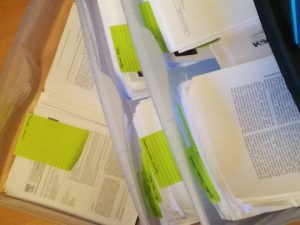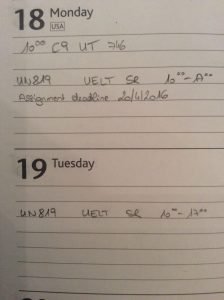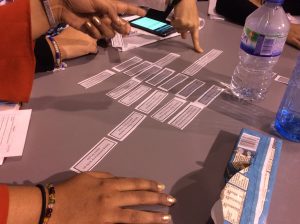
How much reading is enough?
I am often asked how much reading is enough? In this post I outline what you should consider in order to decide when it is enough.

Time management
A cyclical process of reading, writing and editing is only possible if you leave enough time. Time management is therefore one of the key skills to learn when entering University life. The easiest way to introduce effective time management is by preparing schedules.
How to make writing more academic
In tutorials students often tell me that they are not confident regarding their writing skills and they ask me how to make writing more academic. Every University, every faculty and even departments will have their own philosophy relating to writing, so these guidelines must be adhered to. However, I personally think that students' attempts to make writing more academic often result in less structured and weaker essays.

Types of plagiarism
Irrespective of the types of plagiarism, ultimately plagiarism is a punishable offence. Therefore, it is a good idea to get fully acquainted with the different types of plagiarism in order to be able to effectively avoid difficult situations. You are best advised to err on the side of caution and therefore credit too many authors and originators rather than not crediting others enough. Plagiarism is not a trivial offence, but theft and will be treated as such, irrespective of whether or not you plagiarise intentionally or unintentionally.
Plagiarism
What is plagiarism? What are the consequences of plagiarism? What can you do to avoid plagiarising work? A brief introduction.
Proofing and editing
At University level you are expected to have checked, re-checked, edited and proofed your assignment several times. Each time you read through your work you should focus on a different aspect of your writing.